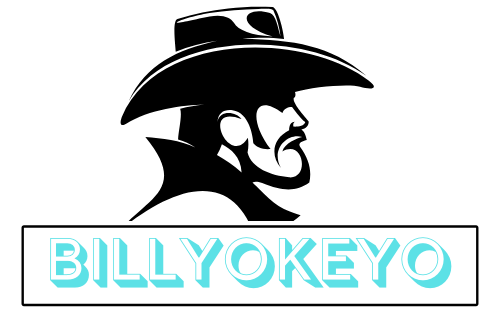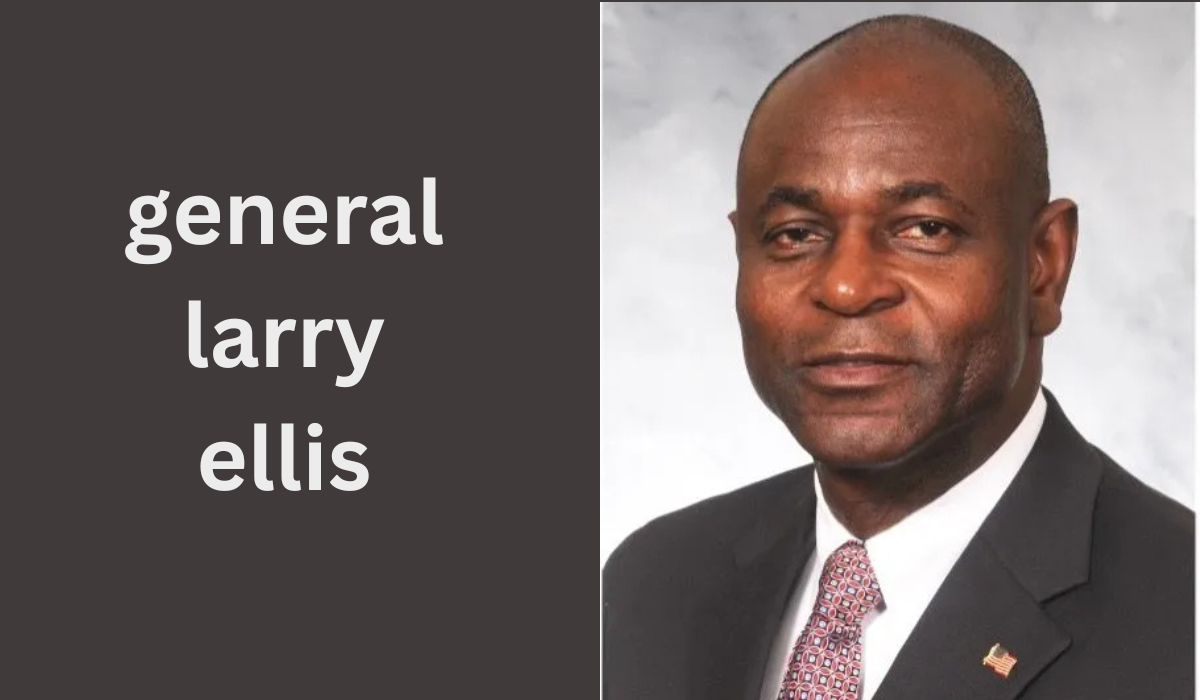🔍 Who is General Larry Ellis?
General Larry Ellis is a distinguished retired four-star General of the United States Army. A respected leader, strategist, and trailblazer, General Ellis’s military service spanned over 35 years. Known for his powerful leadership during both peacetime and in combat zones, he left an indelible mark not only on the U.S. Army but also on the broader American defense landscape.
💬 Why His Legacy Still Matters Today
General Larry Ellis is more than a military man. He’s a symbol of resilience, inclusion, and excellence. As one of the highest-ranking African-American generals in the history of the U.S. Army, his career continues to inspire new generations of soldiers and leaders who value integrity, courage, and commitment to service.
🎓 Early Life and Education
👶 Childhood and Upbringing
Born in 1946 in Pine Bluff, Arkansas, Larry Ellis grew up in the segregated South during a time of great social upheaval. Despite the systemic barriers of the era, he was raised with a strong sense of purpose, discipline, and a desire to serve.
🎓 College Life and ROTC Involvement
He attended Morgan State University in Baltimore, Maryland — a historically Black university — where he joined the ROTC program. This decision would shape the entire trajectory of his life, setting him on a course for military greatness.
🪖 Military Career Beginnings
🎖 Commission into the U.S. Army
Upon graduation in 1969, Ellis was commissioned as a Second Lieutenant in the U.S. Army Infantry Branch. It was the height of the Vietnam War — and his skills and leadership were put to the test almost immediately.
🌏 Early Assignments and Deployments
He served in a variety of command and staff positions, from company-level commands to strategic operational roles overseas. His experience in South Korea and Europe was especially formative, helping him gain a global perspective early in his career.
🚀 Climbing the Ranks
📈 Key Promotions
Ellis was known for his calm under pressure, ability to lead diverse teams, and commitment to his soldiers. These traits led to rapid promotions — from Captain to Colonel, and eventually to the rank of Brigadier General, Major General, Lieutenant General, and finally full General (four-star).
🏛 Leadership Roles Throughout the Army
Over the years, he commanded at every level — from battalion to division — and held staff positions in critical areas of Army readiness, policy, and planning. He was a known innovator, always looking to improve operations and empower junior officers.
🛡 Key Commands and Achievements
🏢 U.S. Army Forces Command (FORSCOM)
In 2001, General Ellis became the Commander of FORSCOM — the largest command in the U.S. Army — overseeing more than 750,000 active duty, reserve, and National Guard troops. His leadership ensured operational readiness across a wide array of units.
🌍 Overseas Assignments and NATO Work
Ellis held high-level positions in NATO and multinational operations, fostering cooperation and coordination among allied forces. His work helped strengthen U.S. partnerships abroad, especially during peacekeeping and training missions.
🧠 Contributions to Military Strategy and Operations
👥 Emphasis on People-Centric Leadership
One of General Larry Ellis’s trademarks was putting people first. He believed that soldiers are the heart of any successful military force and emphasized support systems that addressed their needs — from mental health to family programs.
🔄 Modernizing Army Training and Readiness
He led efforts to modernize training regimens and deployment protocols, ensuring U.S. troops remained flexible, technologically equipped, and culturally sensitive in complex global environments.
🧭 Leadership Style and Philosophy
🪖 Discipline and Empathy
Ellis struck a balance between old-school military discipline and new-age emotional intelligence. Soldiers described him as approachable, yet firm — someone who truly listened and led with purpose.
🌈 Inclusive Leadership and Mentorship
He mentored countless officers of color and advocated for inclusive practices in recruitment, leadership development, and promotions — making sure the Army reflected the diversity of the nation it served.
🎯 Challenges Faced and How He Overcame Them
🧱 Navigating Race in the Military
As an African-American officer during the 1970s and 1980s, Ellis faced institutional and societal challenges. Yet he never let prejudice deter him. Through perseverance, mentorship, and a deep belief in excellence, he became a beacon of progress.
⚙ Operational Hurdles in Command
Commanding massive military structures comes with logistical and ethical challenges — from managing budgets to making deployment decisions. Ellis handled these with transparency and a focus on results.
🏅 Awards and Recognitions
🎖 Medals and Military Honors
Some of General Ellis’s many awards include:
-
Defense Distinguished Service Medal
-
Army Distinguished Service Medal
-
Legion of Merit
-
Bronze Star Medal
-
Meritorious Service Medal
🏆 Civilian Awards and Public Acknowledgment
After retirement, Ellis received numerous civilian honors for his work in leadership, diversity advocacy, and military mentorship, including recognition from the NAACP and U.S. Congressional bodies.
💼 Retirement and Post-Military Career
🏢 Corporate and Nonprofit Roles
Post-retirement, Ellis transitioned to the corporate world, serving on the boards of major defense and consulting firms. He also worked with nonprofits that support veterans, education, and economic development in underserved communities.
📜 Continued Influence on National Defense Policy
Even outside of uniform, Ellis contributed to military reform discussions, national security think tanks, and veteran welfare policy development.
📺 General Larry Ellis in Popular and Military Culture
📰 Media Mentions and Interviews
From CNN interviews to features in Army Times, Ellis has been a respected voice on leadership and military strategy. His insights are frequently sought by news outlets and scholars.
👨🎓 Role Model for Young Officers
His story is often cited in military academies and ROTC programs as a case study in perseverance, leadership, and the power of inclusive command.
✊ Legacy in African-American Military History
🚪 Breaking Barriers
General Ellis was one of only a handful of African-Americans to reach the rank of four-star general in U.S. history. His success opened doors for countless others who followed.
📚 Inspiring the Next Generation
He has spoken at numerous colleges, high schools, and leadership summits, motivating young people—especially minorities—to pursue careers in public service and the armed forces.
❤️ Community Engagement and Philanthropy
🪖 Support for Veterans
Ellis remains deeply involved in supporting veterans through mental health initiatives, job transition programs, and housing support.
👨🏫 Mentoring Future Leaders
He’s known for personally mentoring young professionals, especially those from disadvantaged backgrounds, instilling in them the same values that shaped his career.
🧾 Lessons from General Larry Ellis’ Life
🔑 Leadership That Transcends Ranks
Whether you’re in the Army or a startup, Ellis’s leadership lessons—listen first, lead with heart, act with integrity—are universal.
📘 Integrity and Lifelong Learning
General Larry Ellis never stopped learning. His life encourages us to embrace change, seek knowledge, and stay humble.
🏁 Final Thoughts
The story of General Larry Ellis is not just a military biography—it’s a blueprint for excellence in service, leadership, and humanity. From humble beginnings to the top echelons of the U.S. Army, Ellis showed what’s possible when purpose meets perseverance. His legacy isn’t just etched in military history books—it lives on in the lives he’s touched, the leaders he’s shaped, and the change he inspired.
❓ Frequently Asked Questions (FAQs)
1. What was General Larry Ellis’s highest rank?
He retired as a four-star general, the highest rank in the U.S. Army during peacetime.
2. Which military command did he lead?
He served as the Commander of U.S. Army Forces Command (FORSCOM).
3. Is General Larry Ellis still active in public life?
Yes, through corporate boards, nonprofit organizations, and speaking engagements.
4. What is his educational background?
He graduated from Morgan State University and later studied at the U.S. Army War College.
5. Why is he considered a trailblazer?
As one of the highest-ranking African-Americans in Army history, he broke racial barriers and led with inclusion and integrity.
You May Also like:





